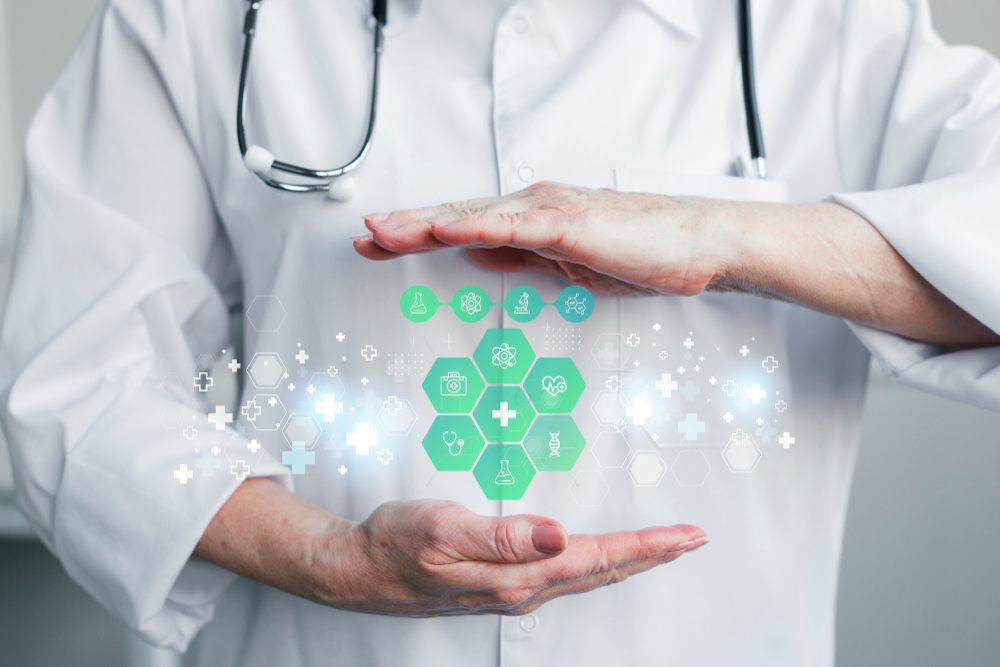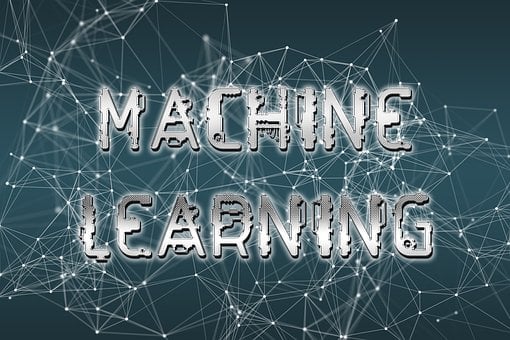
Advantages of Machine Learning in healthcare.
In healthcare, machine learning is used to extract insights from large medical data sets in order to improve clinician decision-making, patient outcomes, automate healthcare professionals’ daily workflows, accelerate medical research, and boost operational efficiency.
Healthcare:
Health care, also known as healthcare, is the process of improving people’s health through the prevention, diagnosis, treatment, amelioration, or cure of disease, illness, injury, and other physical and mental impairments.
Private healthcare services and public healthcare services are the two types of healthcare facilities.
What is Machine Learning?

Machine learning is a subfield of artificial intelligence that is broadly defined as a machine’s ability to mimic intelligent human behaviour. Artificial intelligence systems are used to achieve complex tasks in a similar manner to how humans solve problems.
Machine learning (ML) is a subset of artificial intelligence (AI) that enables software applications to become more accurate at predicting outcomes without explicitly programming them to do so. Machine learning algorithms predict new output values by using historical data as input.
Why is machine learning necessary?
Machine learning is necessary because it provides enterprises with insights into trends in customer behaviour and business operational patterns, as well as aids in the development of new products. Machine learning is central to the operations of many of today’s leading companies, including Facebook, Google, and Uber.
Machine learning has been used in a variety of applications, from predicting behaviour of customers to developing the operating system for self-driving cars. In terms of benefits, machine learning can assist businesses in better understanding their customers. Machine learning algorithms can learn associations and help teams customise product development and marketing initiatives to customer demand by collecting customer data and correlating it with behaviour.
How does machine learning help healthcare?
In healthcare, machine learning can be used to create better diagnostic tools for analysing medical images. A machine learning algorithm, for example, can be used in medical imaging (such as X-rays or MRI scans) to look for patterns that indicate a specific disease using pattern recognition.
Based on the most recent relevant literature, the algorithm could also suggest potential treatment options. Machine learning can process large amounts of patient data in ways that humans cannot, and then reliably convert that analysis into medical insights that assist clinicians in planning and delivering care.
Five advantages of machine learning in healthcare:
Machine learning techniques are a developing field of study with numerous potential applications. Machine learning technology will become increasingly important to healthcare professionals and health systems for extracting meaning from medical data as patient data becomes more readily available. Here are some advantages of machine learning:
1.Facilitates in the Identification and Diagnosis of Diseases:
One of the main advantages of machine learning in healthcare is the identification and diagnosis of diseases and ailments that would otherwise be difficult to diagnose. This can range from cancers that are difficult to detect in their early stages to other genetic diseases.
2.Drug Development and Manufacturing:
One of the most important clinical advantages of machine learning in healthcare is in the early stages of drug discovery. This also includes Research and innovation technologies such as next-generation sequencing and precision medicine, which can aid in the discovery of alternative treatment pathways for multifactorial diseases.
Heat, pressure, and agitation are used to mix materials and ‘extrude’ them through a die. Twin-screw high shear extruders combine materials while also breaking them up. The resulting particles can be blended and compressed into tablets or capsules.
3. Individualised Medicine:
Machine learning in health care allows for more personalised treatments that are not only more efficient and effective by combining individual health with predictive analytics, but it also allows for more research and better disease assessment. Physicians are currently limited to selecting from a limited set of diagnoses and even eliminating risks to the patient based on his symptomatic history and available genetic information.
4. Behavioural Modifications Based on Machine Learning:
Behavioural modification is an important part of preventive medicine, and since the proliferation of machine learning benefits in healthcare, a variety of startups have emerged in the fields of cancer prevention and detection, patient treatment, and so on. Somatix is a B2B2C data analytics firm that has unveiled machine Learning-based apps to recognise gestures that we use and make in our daily lives, allowing us to understand our unconscious behaviour and make some necessary changes.
5.Clinical Research and Trials:
Many people are concerned about how to do and apply machine learning in the healthcare industry. Machine Learning, on the other hand, has a wide range of potential applications in the field of research and clinical trials. As anyone in the pharmaceutical industry will tell you, clinical trials with urgent care are expensive and can take years to complete in many cases.
Using Machine Learning-based predictive analysis to identify potential clinical trial candidates can assist researchers in drawing from a pool of data points such as social media, previous doctor visits, and so on.
